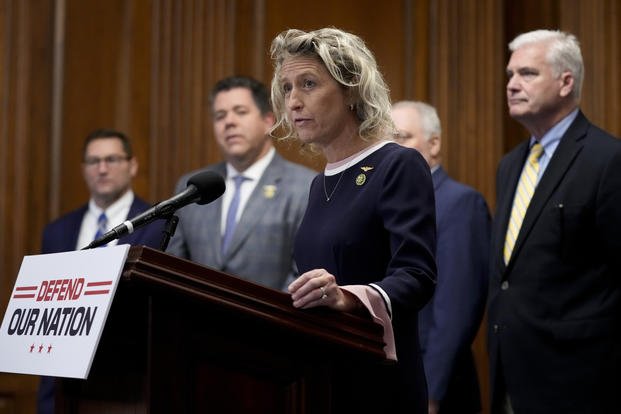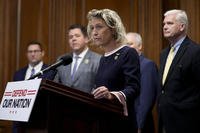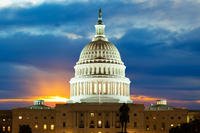With Congress barreling toward a government shutdown at the end of the week, some lawmakers are hoping to ensure troops can continue getting paid, but it's unclear whether their efforts will be successful.
Bills have been introduced in both the House and the Senate that would allow service members, including members of the Coast Guard, to keep getting paychecks in the event government funding runs out when the fiscal year ends this weekend -- a scenario that appears to be increasingly likely.
So far, though, there have been no public signals from either chamber's leadership that they will move forward on those bills. House Republicans continue to focus on negotiating among themselves on spending bills that wouldn't pass the Democratic-controlled Senate anyway, and the Senate is attempting to force the House to swallow a bipartisan bill to avoid a shutdown with short-term funding.
"I will not allow the men and women who put their lives on the line to protect our country go without pay," Rep. Jen Kiggans, R-Va., a Navy veteran, said in a statement last week about introducing the Pay Our Troops Act.
"Our servicemembers shouldn't suffer because of Washington's dysfunction," Kiggans added. "As we continue working to avoid a government shutdown at the end of the month, this legislation will give our troops the financial certainty they deserve."
Kiggans' bill would also allow some Defense Department civilians and contractors to keep getting paid during a shutdown. Sen. Dan Sullivan, R-Alaska, has introduced a similar bill in his chamber to ensure pay would continue for service members, some civilians and some contractors.
The government is on track to shut down at 12:01 a.m. Sunday unless Congress can reach an agreement to extend funding -- a prospect about which lawmakers and observers have been increasingly pessimistic amid opposition from far-right House members to any solution that's been proposed so far.
In general, during a government shutdown, troops have to continue working but cannot get a paycheck unless a bill like the ones Kiggans and Sullivan introduced is passed. Meanwhile, about half of Defense Department civilian employees would be furloughed. Civilian employees who are considered essential for national security would also have to continue working without pay, just like service members.
If a shutdown is short enough that it doesn't coincide with payday, service members could see little to no effect. Some shutdowns in recent history have lasted as little as a few hours. But the longer a shutdown drags on, the more at risk paychecks become.
Even if Congress doesn't pass a bill to protect troop pay, service members would be entitled to backpay at the end of a shutdown. But that would be of little help to the service members who are living paycheck to paycheck. An estimated 286,800 service members suffer from food insecurity, according to Defense Department statistics.
"We know that one in three service families have less than $3,000 in savings -- not enough to cover the cost of housing and daycare in most places," Kathy Roth-Douquet, founder and CEO of Blue Star Families, said in a statement about Kiggans' bill. "Putting our families at financial risk puts our national security at risk and we simply can't allow that to happen."
In the past, Congress has protected troop pay during a shutdown, but it has come down to the wire. In 2013, when the government shut down for 16 days, a bill to keep paying service members was signed into law only hours before government funding lapsed.
There's also no guarantee that a bitterly divided Congress will be able to pass an emergency bill at the last minute.
During the 2018-2019 shutdown, which lasted for 35 days and was the longest in U.S. history, members of the Coast Guard did not get paid for the entirety of the shutdown, driving some to rely on donations and food banks. The rest of the military was unaffected then because Congress had passed a full-year Pentagon spending bill, but the Coast Guard falls under the Department of Homeland Security.
Last week, Sullivan and Sen. Ted Cruz, R-Texas, tried to muscle a bill through the Senate specifically aimed at protecting Coast Guard pay in a shutdown. The bill has Democratic co-sponsors, but Democrats objected to passing it last week, arguing Congress needs to focus on avoiding a shutdown in the first place.
"Respectfully, the pressing issue right now is making sure everyone gets paid, and we prevent a completely unnecessary shutdown that would hurt our families across the country," Senate Appropriations Committee Chair Patty Murray, D-Wash., said on the Senate floor.
-- Rebecca Kheel can be reached at rebecca.kheel@military.com. Follow her on X @reporterkheel.






















